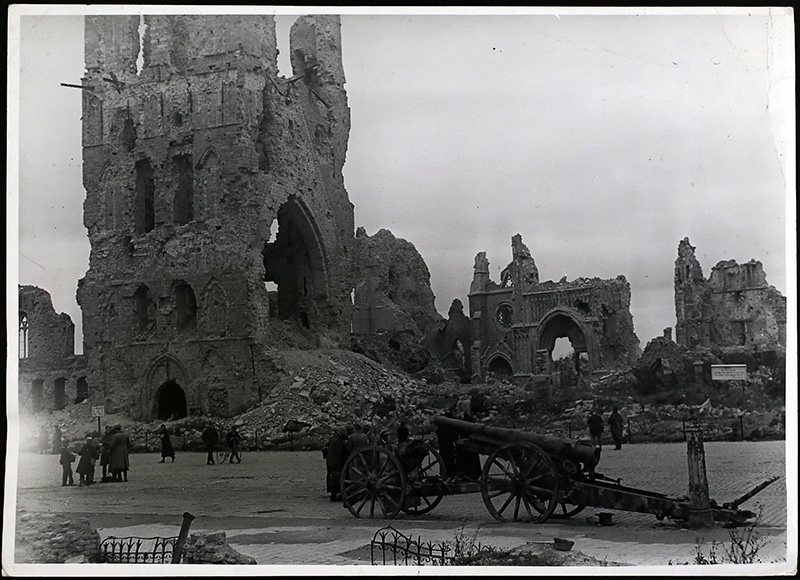On the 19 October 1914, a savage and bitter battle for the strategic town of Ypres, in western Belgium, was taking place. On October 19 the Germans opened their Flanders offensive and the Allies resisted — attacking when and where they could. Ypres was so important because it was the last geographical object protecting the Allied ports at Calais and Boulogne-sur-Mer. The loss of these ports would have denied the shortest logistical supply route to Allied forces on the Front. For the German Army, Ypres was also vital. The collapse of its Ypres front would allow the Allied armies access to the flat and relatively traversable terrain of Flanders. Beyond the Ypres position, the Germans had no significant defensive barrier to protect the massive rail network axis, vital to German strategic and operational mobility in Belgium and the entire northern flank of their front. Such a collapse would also allow the Allies to get to the German-held Belgian ports. Also called the First Battle of Flanders, the Battle of Ypres, along with the Battle of the Somme, will forever encapsulate the futilities of the Great War. Soldiers lived in bleak trench conditions among mud, lice rats and disease and under relentless attack from gas and shells.
The First Battle of Ypres raged on between October and November 1914, when winter and bad weather brought things to a halt. Both sides began digging in and constructing the elaborate trench systems that would characterise the front for the remainder of the war. Even though it was a critical victory for the Allies there were huge losses to civilians and on both sides and the Ypres region suffered as a whole under the heavy bombardment and this set the savage scene for what Ypres was to suffer for the next few years of war. The First Battle of Ypres saw 7,960 British soldiers killed, 29,562 wounded, and 17,873 missing. German losses for their efforts in Flanders totalled 19,530 killed, 83,520 wounded, 31,265 missing. The First Battle of Ypres, was very significant because it witnessed the destruction of the experienced British regular army, which was later replaced by a mass conscripted army to match its allies and enemies. Fighting around the Ypres salient resumed in April 1915 with the Second Battle of Ypres.
Do you know enough about your ancestors who fought in the First World War?
Discover interesting facts about your ancestors, become more knowledgeable about history, and reveal some of the fantastic characters involved in war…What are you waiting for?


